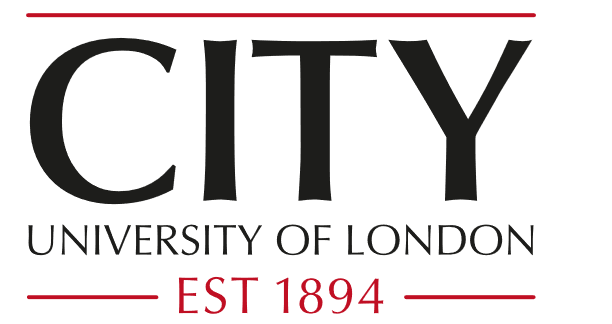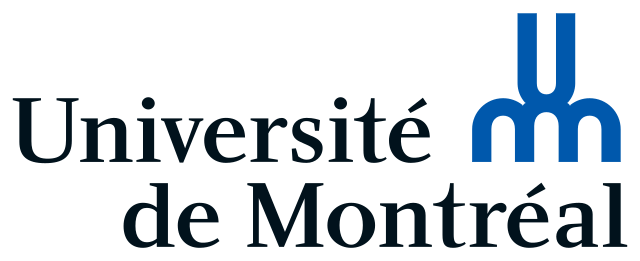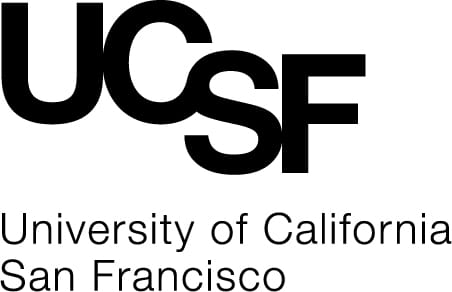
|
NIH R01EY030590: Advancing OCT evaluation to reveal early-stage changes in glaucoma
Legacy Research Institute: Brad Fortune (PI)
Collaborators:
Legacy Research Institute: Dr. Brad Fortune (PI)
University of Pittsburgh: Dr. Ian Sigal (Co-I)
Glaucoma is a leading cause of blindness throughout the world. As a chronic disease with no known cure, it is critical to detect and treat it as early as possible, before it causes permanent vision loss. Eye doctors increasingly rely on an imaging technique called optical coherence tomography (OCT) to help evaluate structures inside the eye that are damaged by glaucoma. However, current clinical OCT methods are only sensitive enough to detect damage after it has occurred. In this project, we will advance novel techniques to extract additional information from OCT scans to detect early-stage damage and distress of retinal cells prior to their irreversible loss.
|
|


|
NIH R01DA055645: Cocaine, parvalbumin, and perineuronal nets
Legacy Research Institute: Barbara Sorg (Contact PI)
Collaborators:
Legacy Research Institute: Dr. Barbara Sorg (Contact PI), Dr. Soren Impey (Co-PI)
Washington State University: Dr. Travis Brown (Co-PI)
Oregon Health & Science University: Dr. Sue Aicher (Co-PI)
This goal of this project is to determine how perineuronal nets impact cocaine-associated memories and cocaine relapse in an animal model of cocaine use disorder.
|
|


|
NIH R01EY034554: Functional Testing and Quality of Life in Glaucoma
Legacy Research Institute: Stuart Gardiner (PI)
Collaborators:
Legacy Research Institute: Dr. Stuart Gardiner (PI)
City, University of London: Dr. David Crabb (Co-I)
Washington University in St. Louis: Dr. Mae Gordon (Co-I)
This project will provide important new information about the effect of different patterns and severities of visual field loss on quality of life. The primary goal is to develop new summary indices based on current clinical testing that predict the effects on different aspects of quality of life, individualized to the patient. These can be used as patient-centered outcomes for clinical trials, and to personalize treatment options and medical advice for an individual patient in clinical care.
|

|
NIH R01EY030838: Retinal Ganglion Cell Dendrite and Synapse Regeneration in Glaucoma: The Role of Insulin Signaling
University of Montreal: Adriana Di Polo (Contact PI)
Collaborators:
Legacy Research Institute: Dr. Brad Fortune (Co-PI)
University of Montreal: Dr. Adriana Di Polo (Co-PI - contact)
Loss of vision in glaucoma results from the death of retinal ganglion cells (RGCs), the neurons that convey visual information from the retina to the brain. RGC dendrites, the fine processes that connect neurons within the retina, retract soon after glaucomatous injury. Here, we propose to investigate underlying mechanisms and strategies that promote RGC dendrite regeneration leading to cell-cell communication and restoration of neuronal function. The results of this project will lead to novel therapeutic approaches for neuroprotection and vision restoration in glaucoma.
|



|
NIH U24EY033269: Overcoming Barriers to retinal ganglion cell replacement in experimental glaucoma
Indiana University: Dr. Jason Meyer (Contact PI)
Collaborators:
Legacy Research Institute: Dr. Brad Fortune (Co-PI)
Indiana University: Dr. Jason Meyer (Co-PI - contact)
Oregon Health & Science University: Sivyer, B (Co-PI)
University of California, San Francisco: Ou, Y (Co-PI)
Damage and loss of retinal ganglion cells (RGCs) is characteristic of many disorders of the visual system, with loss of vision resulting from loss of RGC connectivity to the brain. Although amphibians and fish have the capacity to regrow RGC axons and renew a damaged optic nerve, this normally does not happen in the central nervous system of mammals like human beings. Thus, blindness due to loss of RGCs in glaucoma and other optic nerve diseases is permanent. In this project, we will evaluate the ability of human stem cells – reprogrammed to become “replacement RGCs” – to be transplanted, survive and engraft into the retina of healthy and glaucomatous non-human primate eyes. We will also determine whether different sub-types of replacement RGCs have stronger capacity to engraft and survive, thus paving the way toward restoration of vision to those with optic nerve damage.
|

|
NIH R01EY029087: Advancing novel therapies for optic neuropathy with a nonhuman primate model
University of California, Davis: Dr. Sarah Thomasy (PI)
Collaborators:
Legacy Research Institute: Dr. Brad Fortune (Co-I)
University of California, Davis: Dr. Sarah Thomasy (PI)
The goal of this project is to develop a new nonhuman primate model of autosomal dominant optic neuropathy in order to advance novel treatments for retinal ganglion cell dysfunction and loss.
|

|
NIH R01EY031708: Cross-species vascular anatomy and sensitivity to intraocular pressure in glaucoma
Massachusetts Eye and Ear Infirmary: Joseph Rizzo (PI)
Collaborators:
Legacy Research Institute: Dr. Brad Fortune (Co-I)
Massachusetts Eye and Ear Infirmary: Joseph Rizzo (PI)
Major goals are to use sequential in vivo and ex vivo imaging to produce high-resolution three-dimensional maps of the vasculature and the connective tissues of the intra-orbital optic nerve in humans, monkeys, and mice in order to quantify the effects of acutely elevated IOP on the function and biomechanics of the vasculature ex vivo in all three species, and also test the effects of experimental glaucoma on vessel morphology and function in mice and monkeys.
|

|
NIH R01EY034973: Retinal circuit disassembly in glaucoma
University of California, San Francisco: Yvonne Ou (PI)
Collaborators:
Legacy Research Institute: Dr. Brad Fortune (Co-I)
University of California, San Francisco: Yvonne Ou (PI)
To systematically determine the connectivity, function, and transcriptomes of retinal ganglion cells undergoing circuit and synapse disassembly in glaucomatous primate retina.
|

|
NIH R21EY034188: Long-Term Quality of Life in the Ocular Hypertension Treatment Study Cohort
Washington University in St. Louis: Gordon, M & Gao, F (MPI)
Collaborators:
Legacy Research Institute: Dr. Stuart Gardiner (Co-I)
Washington University in St. Louis: Drs. Gordon & Gao (MPI)
This project will provide important new information about the role of blood flow in glaucoma. It is known that blood flow in the retina is altered during the disease; this project aims to determine whether that is the result of retinal ganglion cell loss, or a factor that contributes to cell loss, or both. This will be achieved by longitudinal testing of blood flow in the optic nerve head and retina in human participants with glaucoma, and comparison against other clinical testing modalities. It will reveal new targets both for diagnostic testing and for treatment, and elucidate the processes by which glaucoma progresses and ultimately leads to blindness.
|

|
NIH R01NS134592: Astrocyte regulation of cerebral blood flow at the intersection of ischemia and Alzheimer's disease
Oregon Health & Science University: Anusha Mishra (PI)
Collaborators:
Legacy Research Institute: Dr. Laura Villasana (Co-I)
Oregon Health & Science University: Dr. Anusha Mishra (PI)
Blood flow to the brain is very important for healthy neurological function, but it is dysregulated in patients who suffer strokes, Alzheimer’s disease and other related dementias. Here, we will examine whether strokes can initiate disease processes in astrocytes, a key brain cell that controls brain blood vessels, to cause long-lasting decrease in blood flow and contribute to dementia. Findings from this study may guide the development of novel treatment strategies to prevent or reduce dementia by restoring brain blood flow.
|

|
NIH National Multiple Sclerosis Society RG-2206-39711: Hyaluronan as a mediator of cognitive dysfunction in neuroinflammatory disease
Oregon Health & Science University: Lawrence Sherman (PI)
Collaborators:
Legacy Research Institute: Dr. Barbara Sorg (Co-I)
Oregon Health & Science University: Dr. Lawrence Sherman (PI)
The goals are to determine whether hyaluronic acid synthesis increases in the hippocampus during early phases of a multiple sclerosis model (experimental autoimmune encephalomyelitis, EAE) and whether this is due to elevated hyaluronidase activity. An additional goal is to determine whether hyaluronic fragments alters the function of parvalbumin neurons and influences neural stem cell proliferation and neuron maturation in the hippocampus, contributing to cognitive dysfunction.
|

|
FDA 75F40122C00116: Community Uses of Psychedelics and Safety Study (CUPS)
Oregon Health & Science University: Brian Anderson (PI)
Collaborators:
Legacy Research Institute: Dr. Adrienne Wilson-Poe (Co-I)
Oregon Health & Science University: Dr. Brian Anderson (PI)
The Community Uses of Psychedelics and Safety Study” (CUPS) has the objective of using a multimodal set of research methods to assess for emerging trends of harm, and established methods for assuring safety, among psychedelic users in community settings to better understand the trajectory of psychedelics use and associated public health consequences.
|

|
DHHS 75S20123P00003: Data for Consultative Psilocybin Harm Reduction Development in Oregon
Oregon Health & Science University: Todd Korthuis (PI)
Collaborators:
Legacy Research Institute: Dr. Adrienne Wilson-Poe (Co-I)
Oregon Health & Science University: Dr. Todd Korthuis (PI)
This project will develop and deploy community-based education and harm reduction materials to
address the growing use of psychedelic substances in Oregon.
|












